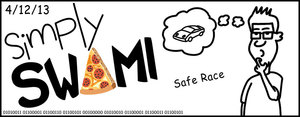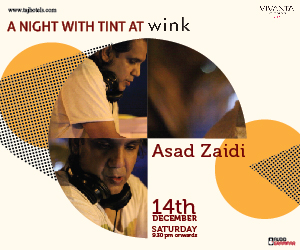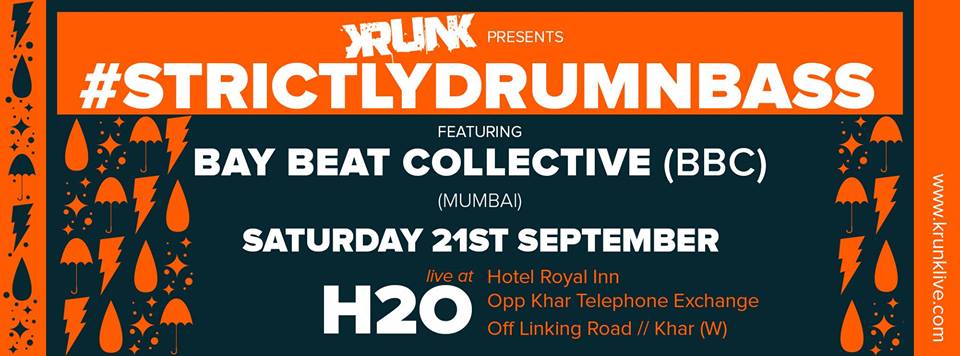A shopper walks past a roadside stall selling tees urban paraphernalia in Tehran. Picture: Udit Mehta
“Sassi Mankan” sounded blasphemous to me, after all I had grown up evaluating the values taught by “Sassi Punnu,” a Sindhi folklore tale and a household bedtime story preached by grandmothers across my native Punjab, characteristic of eternal love and the tragedy that surrounds it (all pun intended) and here to think of Sassi running away with Mankan, sacrilegious.
It wasn’t very kindly that I was introduced to Sassi and this Mankan guy either. As we drove out of the Imam Khoeimi International Airport, the gateway into the increasingly gated Iranian capital Tehran, there was this noise that blurted out of the car stereo speakers that at first reminded me of my grandmothers boisterous burps and as one of the twin daughters of our gracious host said “Sassi Mankan” the grandmother connection synched in defiance of sanctity and I made the delirious assumption of Sassi running away with Mankan.
The fact that Punnhun (or Punnu) was a native of Balochistan, half of which was in Iran and the other half integral to erstwhile undivided India and Sassi from neighbouring Sindh my delirium multiplied – had she run away with someone from a more central part of Persia and was the song playing out on the car stereo an ode to a more “Sassy Sassi”. Soon she intervened – one of the twins that is – Sasi Mankan you see was not the title of the song – it was the singer (spelt Sasy Mankan). Delirium prevented from turning into downright distraught.
But blasphemy again it was. We were in Iran remember, the country that everyone (“everyone” means America if you didn’t know already) wanted to bomb. Now increasingly so since they are becoming possessive of their Nuclear capabilities, and that N-word just brings on the heebie jeebies in Obamaland. It had only been a couple of hours since I fumbled to skip to the next song on my Ipod’s playlist fearing someone might overhear the “F-word” from Smokie’s Living Next Door to Alice on the Mahan Air flight from New Delhi. Heck, they would probably imprison me on hearing just the Alice bit I thought, my political analysis competencies working overtime to remind me of incarceration for insult to the Islamic state governed by the doctrine of the Imams.
The Iranian Ministry of Culture and Islamic Guidance is as famed as fabled, more so feared (go watch the multiple Oscar winning film “Argo” for more details). So Sassy Mankan going about his rap business with beats thumping in from a Chinese sub-woofer as we travelled in this small French sedan from Tehran towards the small northern Iranian city of Qa’em-Shahr, hundreds of kilometres away wasn’t idyllic – not with the idiotic incarceration idiosyncrasies that occupied my mind. Alright, so the landscape was scenic, a pretty sunset was setting-in and we had just bought the tastiest plums, oranges and muskmelons, but those varieties of fruit placed in the reverse order was how much my masculinity had shrunk passing every police vehicle. Would someone turn down the volume.
It was a little past midnight as we entered the second storey apartment which was to be our base for the next couple of weeks, with the six odd hours we’d been on the road, Sassi Mankan and the volume had both grown on me, more so the defiance of a political regime curbing the most basic human right.
As soon as we sat down in the living room, there was more “shock and awe” to follow than George Bush would have ever wanted in Iraq (Circa 2003). On this very 1980’s looking television set jacked-up to accommodate a DVD player, music videos featuring musician Afshin like Dokhtar Shirazi, played out the cuddling and cajoling that we were used to looking at on television screens in India. We watched similar acts with such impunity back home, but then this was Iran, which if the United States were to be believed was a state sponsor of terrorism, one of only four countries in the world to win that accolade. And that since the 1980-87 cultural revolution had progressively banned and periodically pulverized the artistic freedom of its citizens.
Also worth mentioning is this anti-establishment music video by artist Barobax, rising pop star in Iran.
In 2009, Persian singer Arya Aramnejad was arrested by Iranian authorities for releasing his song Ali Barkhiz which carried the lines - “What sin have the people committed? We just want freedom.” In 2012, a number of Iranian Ayatollahs issued four fatwas targeting Shahin Najafi, a Germany based singer forcing him to go underground. These incidents are of course only representative, with thousands of other artists impacted by an ongoing tirade against pop culture since the 1979 Islamic revolution.
This made the Iranian situation particularly peculiar. At the outset the Persian culture, literature and language was one through which secular values and Sufi sages had found their voice since times unknown.
In late 2011, the Iranian Ministry of Culture removed verses from “Khosraw and Shirin”, a famous Persian epic and launched a campaign to remove Sufi poetry, the heart and soul of the local culture influenced largely by Rumi, from Iranian songs.
Yet here we were in a rather remote city in northern Iran watching singers croon dooset daram (I love you) even as authorities had banned lyrics that spoke about love.
Over the next fortnight there was more faux freedom to enjoy. There were videos playing clandestinely of course that could for good or bad be compared to anything from westwards – distance both in terms of miles and mores was being negated by dresses (or the lack of them), demeanours and dudes. Put the television on mute and watch one of those music videos and you would think they were playing VH1’s debut artists show.
Two weeks later as we entered Tehran once again, this time from the south through Isfahan, having travelled through villages across Iran that cultural vibe remained omnipresent without any ostentatious need to obviate the obvious, poetry replaced by pop – was continuing to preach all things human and defy clampdowns by clerics and clowns alike.
As I took a walk around the Enqelab (Inqelab/Revolution) Square and the Azadi (Independence) Street in the heart of Tehran on my last day in Iran, the reality of revolution and the irony of independence were abundantly analysed.
Inqelab’s (revolutions) while being answers to incitement, incompetence and impediment, were not driven through mobs, machineguns and mad men on microphones. Instead Inqelab was nothing but a manifestation of poetry and pop. And the politics of pop had already been voted into power and parliaments across the world even as an Inqelab continues in Iran.





























